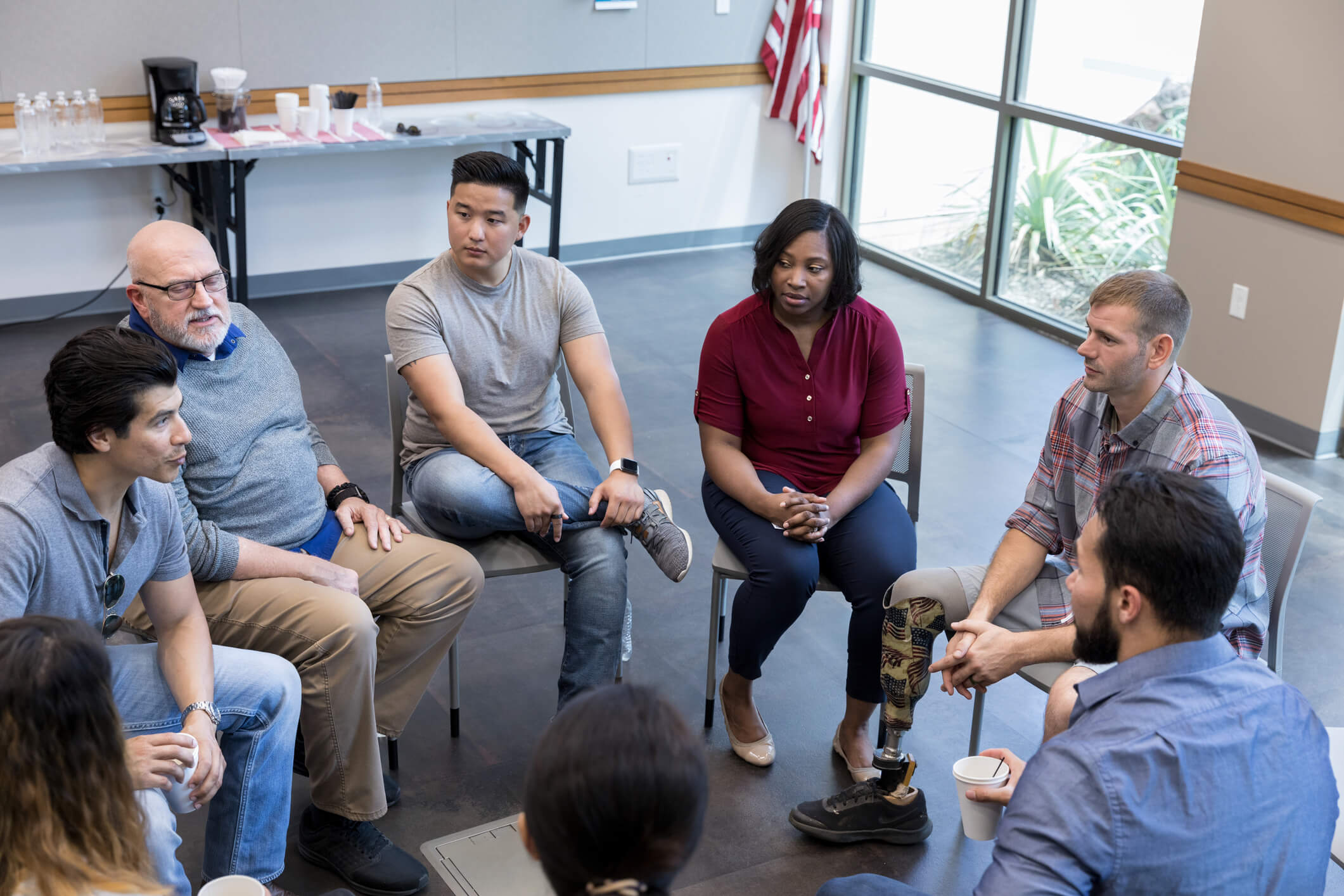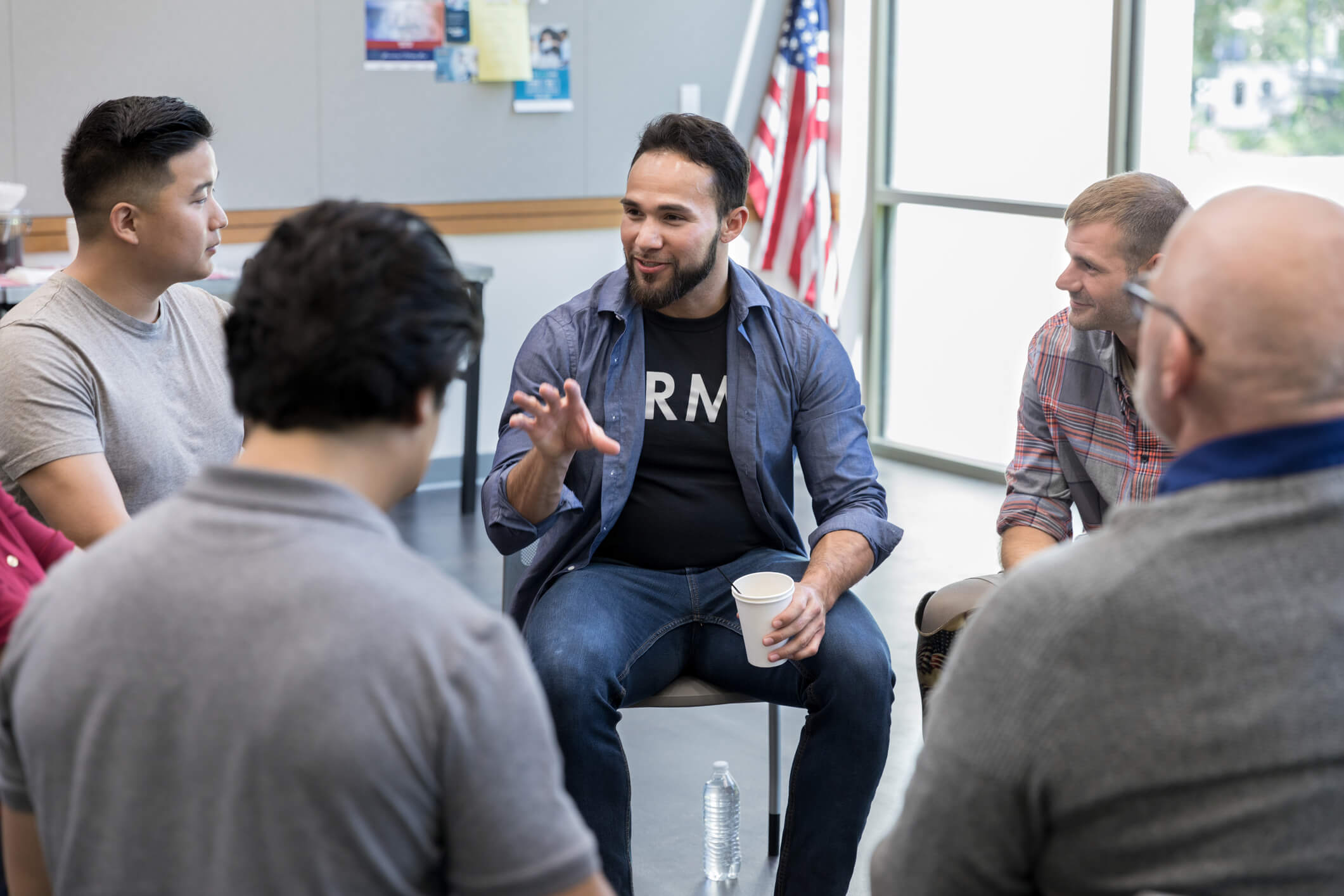When Malvern first opened its doors, Alcoholics Anonymous was in its infancy. Since the beginning, Malvern has recognized the significant role that self-help groups like Alcoholics Anonymous and its spin-offs (like Narcotics Anonymous and Gamblers Anonymous) play in the success rate of those in recovery from addiction.
The question has arisen as to why these programs help those in recovery stay clean and sober. Why do treatment programs place so much importance on individuals actively participating in 12- step recovery programs during treatment and after completion of treatment?
Intensive Treatment Will End
One of the main reasons for stressing the importance of involvement in self-help groups is the impact on longevity in recovery. A typical treatment program may begin with a 30-day stint in an inpatient facility, commonly referred to as a “rehab”.
What is Rehab?
In rehab, a client will begin the process of detoxing from their drug of choice. The fogginess of thinking brought on by their drug dependence will begin to clear and they will begin to learn about triggers, coping skills, and how to handle life stressors without abusing substances. But they are still very raw, so upon completion of that phase, they move on to outpatient treatment.
What is Outpatient Treatment?
This stage of treatment can last anywhere from 90 to 180 days. During this time, the individual will learn even more about their behavior patterns, hone their coping skills, and address the underlying issues that led to their drug use. They will also be introduced to the idea of self-help groups.

The point here is that eventually treatment will come to an end. The recovering person will have to leave the nest and become more independent in their sobriety.
There is Strength in Numbers
At this point, individuals will begin to navigate a world full of triggers, temptations, and challenges. Those in early recovery are readjusting to the world outside of rehab, and are especially susceptible to hardships like job loss, health issues, relationship problems, legal issues, and financial stress.
It is imperative that they have a community to turn to for help in those trying times. That’s where the 12-step recovery groups come in to play.
Why are 12-Step Recovery Groups Helpful?
If the client has been diligent in their recovery, they have established a network of people they can turn to who are familiar with their journey. In a 12-step recovery program, they will have the chance to dig deeper into the underlying issues of their addiction with these like-minded individuals. More importantly, they will get the opportunity to establish friendships, comradery, and trust with others who have struggled with addiction and managed to stay clean despite what life has thrown at them.
This builds hope in those who are new to recovery. If others have managed to get through the early days, then so can they. It reinforces the core idea that a person can succeed in recovery not only through their own willpower, but with the help of others. It is this concept that the founders of Alcoholic Anonymous stumbled upon. They couldn’t stay sober on their own, but working together they could help each other stay sober.
They Provide a Support Network
There are several studies that confirm the critical importance of connecting with others in recovery. The studies show that those who are connected to other people on a regular basis stand a significantly better chance of long-term sobriety.
It’s true that people in early recovery should rebuild their connections with family, friends, co-workers, church, etc. But getting connected to groups of people who are in recovery adds something that the other groups cannot – unconditional love, understanding, and empathy.

Empathy From Like-Minded Individuals
The new person in recovery desperately needs a group of people with whom to bond. These people will become their “tribe” and will understand every aspect of their recovery since they’ve experienced it first hand.
They’ll understand what the person means when they talk about the “committee in their head”. They’ll get why it’s such a big deal to go through a breakup or crisis without using in a way that “normal” people can’t. Those in early recovery need to see with their own two eyes that it is possible to deal with anything the world throws at them without falling back into their old habits.
They Help Build Social Circles
In early recovery, individuals may suffer from a condition called anhedonia: the state of not feeling much excitement about much of anything. Because the drugs have wreaked havoc on the reward circuit of the brain, it takes a while for normal activities to regain their rightful status in a person’s life.
This is why it’s so important for those in early recovery to know and experience fun without the risk of relapse — and 12 step recovery groups are a great outlet for that need. There, one can camp, hike, dance, and party as well as attend sporting events, recovery conventions, and concerts, all without the presence of drugs and alcohol. This helps retrain the mind that it is the activity, not the substance that brings them joy.
They Establish Long-Lasting Mentorship
Last but certainly not least the person in early recovery needs a guide. They need someone to help them walk through life in early recovery just like a tour guide would steer you away from the dangerous parts of town and highlight the beautiful parts.

The person new to recovery is fragile and needs to learn or relearn how to live, communicate, handle confrontations, and work on themselves in addition to staying clean. In addition to taking addiction treatment seriously, a 12-step recovery group can exponentially increase the odds of long-term recovery success.
